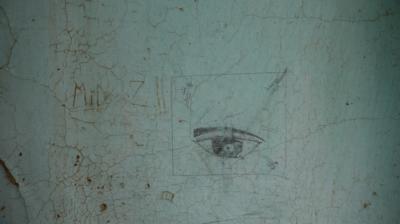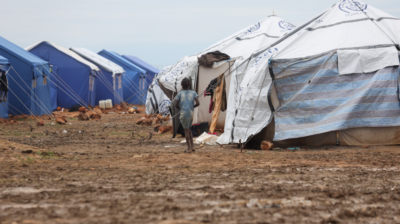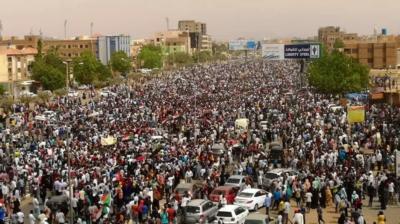Gaza is not a humanitarian crisis: on self-defence, depoliticising language, and contextualisation
On Thursday evening October 26, EU member states finally agreed to a formal declaration calling for ‘humanitarian corridors and pauses’ of the shelling in Gaza. The declaration also expressed concerns for the ‘deteriorating humanitarian situation.’ While some have celebrated this move as a display of European unity and care for Palestinian lives, other have criticised the declaration for not insisting –as did eventually the UN spearheaded by Jordan– on an immediate and durable ceasefire. The declaration also smells of humanitarian hypocrisy. Although allowing safe and urgent access of humanitarian aid to Gaza is surely important, European leaders have enabled the ongoing war crimes against Palestinians by insisting on Israel’s unconditional right to ‘defend’ themselves. Moreover, the representation of Gaza as a humanitarian crisis erases the political and historical roots of the war, in which Europeans are not moral bystanders but are deeply implicated.
On self-defence
“What sane person could live in this world and not be crazy?” asked the late feminist writer Ursula K. Le Guin. For the past few weeks, I have asked myself the same question repeatedly. Since Israel began its bombing campaign on Gaza in response to Hamas’s terror attacks on October 7, European leaders have continuously emphasised Israel’s right to defend itself. Meanwhile, witness reports from inside Gaza speak of continuous bombardment, civilian deaths and displacement.
The magnitude of the violence and suffering is hard to take in. On October 16, Save the Children reported that one child in Gaza was being killed every 15 minutes. Since then, the shelling has only intensified with hospitals and other civilian infrastructure targeted. Three weeks into the war, at least 3.195 Palestinian children have been killed. This number surpasses the annual number of children killed across the world ‘s conflict zones since 2019. Thousands of men, women and children are also reported missing, presumably buried under the rubble.
On October 25, Yousef Hammash, spokesperson for the Norwegian Refugee Council on Gaza, wrote the following on X (formerly Twitter):
“I don’t know how, even when this chaos is finished, how we will recover. We are two million people who are traumatised. I don’t think there is enough psychosocial support on this planet that could help us.”
The right to self-defence is an important principle in international law but cannot be given as a blanket statement. It also carries particular meaning in the Israel-Palestinian conflict, where Israel has continuously used it to excuse and legitimise more oppression and dispossession. Since October 7, Israel has been bombing and displacing the population of Gaza and refusing them supplies of food, water, fuel, and other necessities. This is collective punishment and not self-defence.It is also a flagrant violation of international law.
In the past few days, some European politicians have qualified their support to Israel by urging Prime Minister Netanyahu and the Israeli army to respect international laws and the protection of civilian lives. To some, this might sound like a reasonable compromise that respects the rights and needs of the population on both sides of the conflict. However, the idea that exposing a civilian population to bombardment, blockade and eviction orders can be just and legitimate is a contradiction in terms. Moreover, human rights organisations have already documented multiple indiscriminate attacks directed at civilian targets. In the words of Amnesty International’s Secretary General, Agnès Callamard:
“In their stated intent to use all means to destroy Hamas, Israeli forces have shown a shocking disregard for civilian lives. They have pulverized street after street of residential buildings killing civilians on a mass scale and destroying essential infrastructure, while new restrictions mean Gaza is fast running out of water, medicine, fuel and electricity. Testimonies from eyewitnesses and survivors highlighted, again and again, how Israeli attacks decimated Palestinian families, causing such destruction that surviving relatives have little but rubble to remember their loved ones by.”
We must condemn Hamas for their acts of terror and brutality and demand that they immediately release the innocent Israeli hostages. We must also respect Jewish fears, traumas and suffering, and intervene to address the worrying rise of antisemitism in our communities and worldwide. However, as underscored by Jewish peace activists in Israel and across the world, we should not show solidarity with Israeli civilians by granting their leaders moral permission to retaliate. Revenge will not break the cycle of violence or contribute to making citizens of Israel safe. As violently exposed by the October 7 terror attacks, no lasting peace will be achieved unless Palestinians are granted their full rights and freedoms.
On language
In the past weeks, I have been involved in multiple debates inside and outside of academia about language and terminology. Admittedly, it feels morbid and absurd to argue about language, while children are buried under rubble or dying in hospitals in Gaza that are struggling to stay afloat.
However, the language we use to describe violence and injustice matters. As I have argued elsewhere regarding European border violence, I am critical of representations of the unfolding events in Gaza as a ‘humanitarian crisis.’ Although well-intended, this language obscures the prolonged and everyday violence and dispossession of the Palestinian people. It also conceals the political and historical roots of the current war, including the West’s and Europe’s historical complicity.
Gaza is not a humanitarian crisis but a politically sanctioned attack on civilian infrastructure and people who, due to decades of occupation and blockade, are made unable to defend themselves. Moreover, this is not an ‘evacuation’ or ‘relocation’ but a forced and unlawful displacement of the Palestinian people.
Listening to some public commentators, it seems as if they think that if only Egypt would open its border and let the people of Gaza in, everything would be all right. However, this ignores the fact that many Palestinians are severely injured, hospitalised or otherwise unable to move. Some are also understandably reluctant to give into Israel’s evacuation orders and leave their homes and land behind. Historically, displaced Palestinians have been categorically denied their right to return, to their homes, lands, and property from which they were illegally dispossessed. In fact, most of Gaza’s population are refugees or descendants of refugees who have been ethnically cleansed and expelled from their homes and land before. Like the right to self-defence, forced displacement thus means something special in the Israel-Palestinian conflict. It has been part of Palestinian’ lives since the state of Israel was established after the Second War and effectively contributed to Israel’s settlement expansion and annexation of Palestinian territory. For this reason, we should all be wary of commentators and politicians who speak of the need to ‘evacuate’ the Palestinian population as if this was a positive humanitarian intervention and solution. We should also be wary of calls for ‘humanitarian pauses and corridors’ when these calls are not immediately followed by commitments to Palestinians’ rights to return, self-determination and statehood.
On context
Language matters. So does history. In Norway and elsewhere, some have argued that Hamas’ attacks on October 7 are so horrendous they resist any form of interpretation or contextualisation. Others have accused contextual analyses of being morally relativising, for shifting the blame and responsibility or rationalising violence. However, as Susan Sontag argued, images are ‘insufficient to repair our ignorance of history and the cause of suffering these images pick out and frame.’ Moreover, Judith Butler asks astutely: ‘Why can’t we condemn morally heinous acts without losing our powers to think, to know and to judge? Surely we can, and must, do both.’
Like all the pro-Palestinian advocates I know, I oppose any effort to justify Hamas’ atrocities. I also sympathise with the reluctance to make sense of them. Yet, we cannot understand the attacks in isolation from Israel’s longstanding, brutal, unlawful, and increasingly normalised occupation of Palestinian territories. Nor without taking into account the international community’s abandonment of the Palestinian cause and people. In fact, as Lori Allen argues, the history of our present starts much earlier, shaped by the West’s rejection of Palestinian demands for a democratic state and Europe’s decision to absolve itself of responsibility for the Holocaust by supporting the Zionist settler-colonial project.
We must also be wary of how the incessant demand to condemn Hamas frames the debate and the condition on which most Palestinians are allowed to speak. As professor of English and comparative literature at UCLA, Saree Makisi, knowingly observes:
“What we are not allowed to say, as Palestinians speaking to the Western media, is that all life is equally valuable. That no event takes place in a vacuum. That history didn’t start on October 7, 2023, and if you place what’s happening in the wider historical context of colonialism and anticolonial resistance, what’s most remarkable is that anyone in 2023 should be still surprised that conditions of absolute violence, domination, suffocation, and control produce appalling violence in turn.”
As Makisi highlights, turning to history challenges the all-too-common tendency to speak and write as if the current war started on October 7, 2023. It also challenges racialised narratives of the war as a civilisational conflict between the ‘liberal democratic west’ and ‘fundamental Islam’. This framing is not merely reductionist and ahistorical but also incites further polarisation.
Finally, turning to history is crucial to not only understand the ongoing atrocities but also to understand whether ‘conditions might change such that a future of violence is not all that is possible.’ To this end, we must also understand Israeli Jews’ desires and needs for security and recognition in the context of the Holocaust and enduring and growing antisemitism. Like the Palestinian people, Jews carry intergenerational trauma and have existential and legitimate fears of being annihilated. While Israeli Jews’ freedoms and ways of life are promoted by the Israeli state, they also suffer from the conflict, and increasingly many are critical of their right-wing government, the Israeli occupation, retaliation attack, and surging settler violence on the West Bank. Somehow, we must find ways to acknowledge all of this without erasing the colonial domination of the Israeli state and without conflating historical events with ongoing apartheid, terrorism and oppression.
As I write this piece, Israeli air strikes continue to damage hospitals in Gaza, and civilian death tolls keep rising. According to a spokesperson for UNICEF, Gaza has already become a graveyard for children, and many more will be killed in the days to come. In a sane and just world, this would be unbearable and unacceptable to all of us. Instead, solidarity with Palestine and efforts to oppose violence against civilians are increasingly silenced and oppressed.
Time to act
With this piece, I am heeding Lori Allen’s poignant call for us as anthropologists, scholars, and teachers to act. Those of us who are not scholars from or of the region should recognise this and make sure we do not displace other voices. However, as anthropologists and scholars of humanitarianism and displacement, we should use our tools and knowledge to intervene where possible and appropriate. We cannot accept that indiscriminate attacks on civilians and other war crimes are justified under the rubric of self-defence or as part of a larger narrative of a ‘war against terrorism.’ Therefore, we must challenge dehumanising and depoliticising language and do what we can to hold the Israeli government and our own political leaders to account. We must also challenge the longstanding misrecognition of Palestinian lives and freedoms, which for too long have allowed the Israeli apartheid system to continue. This is not the time for us to be worried about being seen as ‘too political’ or claiming that scholars ought to be ‘objective’ or ‘neutral’. Gaza is not a humanitarian crisis but a politically sanctioned attack that collectively punishes Palestinian civilians in the name of justice, security and ‘never again’. As western citizens, many of us are also implicated in this violence historically and through our countries’ support for Israel, weapon export, and abandonment of the Palestinian cause and people.
This blog post is written for Public Anthropologist by Heidi Mogstad, Post Doctoral Researcher at CMI for the 'War and Fun: Reconceptualizing Warfare and Its Experience' research project funded by the European Research Council.
The views expressed in this post are those of the author, and do not necessarily reflect the opinions of CMI.










